Stewardship Stories: Alan “Mushroom” & Linda Kapuler
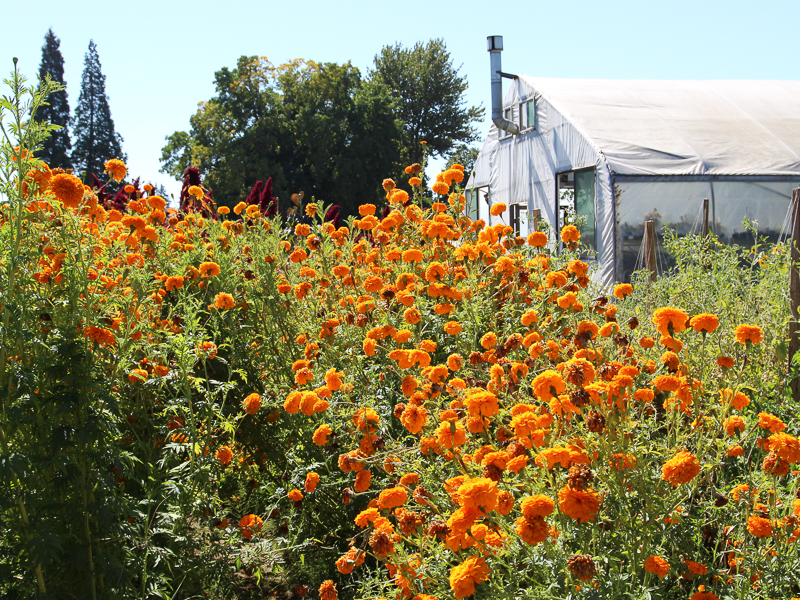
Alan “Mushroom” & Linda Kapuler
Peace Seeds
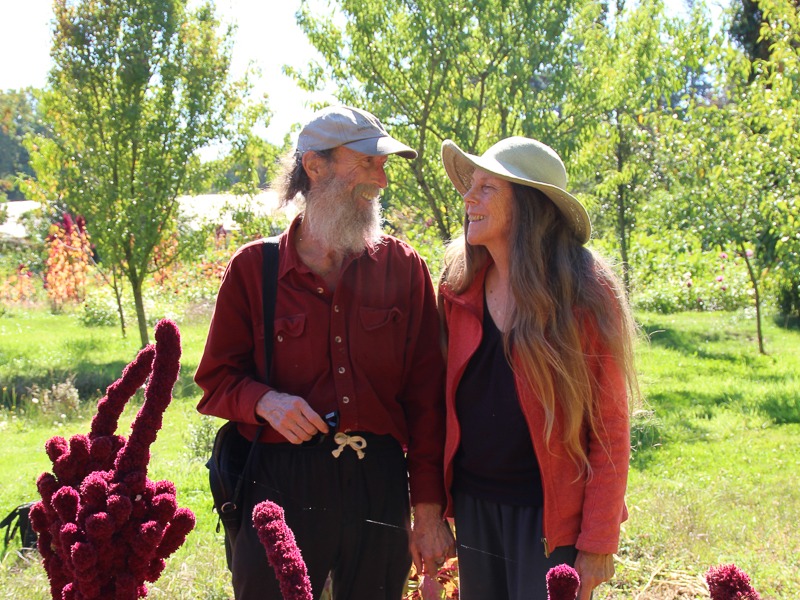
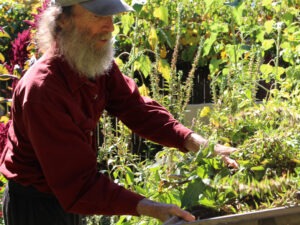
A few years after receiving his PhD in Molecular Biology from Rockefeller University NYC, Alan Kapuler embraced counterculture and moved to a commune in southern Oregon.
It was there (in the early 1970’s), hoping to help provide for the group, that Alan first began to garden and sell seeds. “We didn’t know anything about business, we didn’t know anything about saving seeds, and we knew nothing about gardening,” he recalled.
Many things had changed for Alan since then, including the fact that he is now widely considered to be an expert in the field of plant breeding. Alan spent more than 40 years collecting unique seeds, researching amino acid contents in tomatoes, and breeding nutritionally diverse varieties, all in the name of promoting better health. Kapuler collaborated with Dr. Sarangamat Gurusiddiah PhD (the chief of the Biochemistry Lab of Washington State University) conducting hundreds of analyses for free amino acids in organically grown flowers, fruits, and vegetables.
In 1975 Alan Kapuler, his wife Linda, and their friend Alan Venet founded what would later be called Peace Seeds. Although they didn’t have much money to spare in the early days, Alan and Linda recognized the importance of preserving heirloom seeds.
In 1981, they invested $100 to become Seed Savers Exchange lifetime members. Their seed catalogs have always focused on a wide variety of open-pollinated seeds including rare heirloom varieties along with Peace Seeds originals.
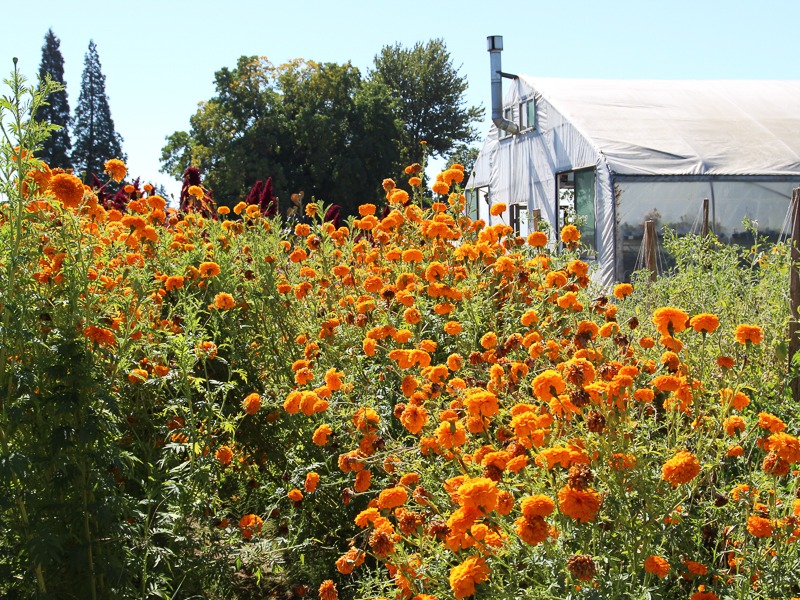
Alan first started breeding ‘Rainbow Inca’ sweet corn when he realized the health potential in breeding multi-colored vegetables. “I knew that the yellow (in the corn kernels) was zeaxanthin or lutein, which were two Carotenoid pigments that go to protect our eyes from photo-damage as we get older… [and] that purple color is anthocyanin-3 glucoside—that’s a free radical trap, so if you eat that corn it improves your health!”
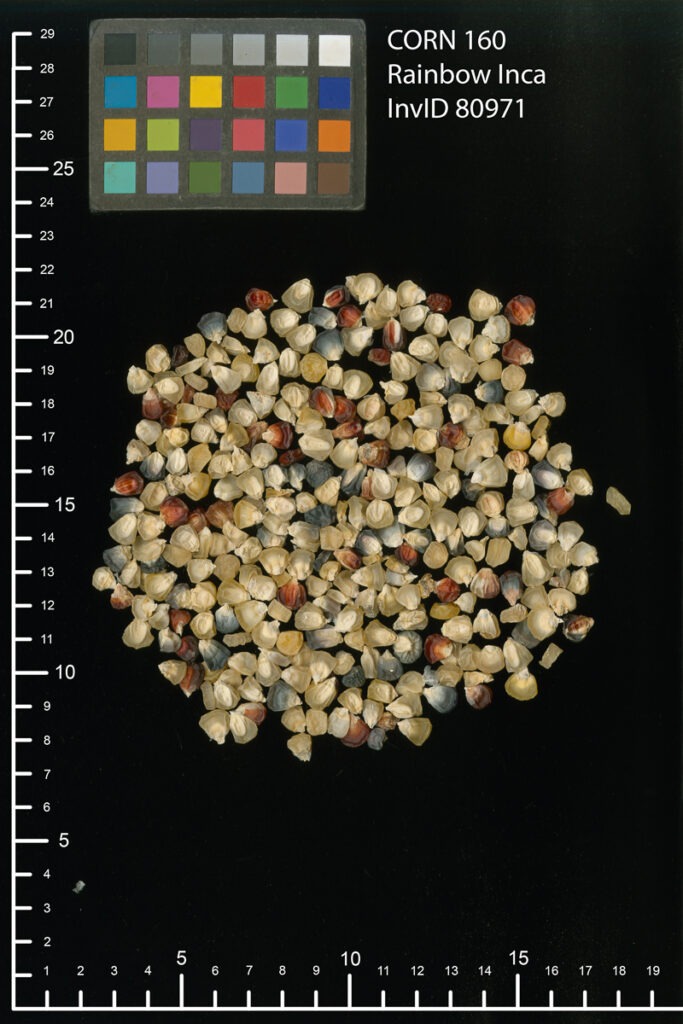
Alan “Mushroom” Kapuler passed away on November 11, 2023.
Seed Savers Exchange has led the heirloom seed movement since 1975, inspiring a generation of seed companies to specialize in rare, regionally adapted, delicious, and irreplaceable open-pollinated varieties. Many of these companies were founded by our own Seed Savers Exchange members. Rather than allowing heirloom and historic varieties to vanish or go unnoticed, these members launched an uncoordinated, organic, and persistent resistance to the disappearance of heirloom seeds. This first wave of heirloom seed companies did not offer seed catalogs in response to consumer demand. Instead, they created it.
Originally a part of the “Rise of the Heirloom Seeds” exhibit made possible by The 1772 Foundation.
This is the story of one of nine small seed companies and a few of the varieties they have preserved. While each and every one of their backgrounds is as unique and bold as the varieties they share, they all have one thing in common: the passion for sharing seeds.
Bios written, interviews, and correspondence by Kelly Loud with help from Sara Straate.
Special thanks to the following people: Alan and Linda Kapuler, Suzanne Ashworth, Craig Dremann, Steve Sando, Mike and Denise Dunton, Tom Wagner, Joanne Ranck-Dirks, Sue Ellen Majer, Bill McDorman, and Glenn Drowns.
Updated September 2024